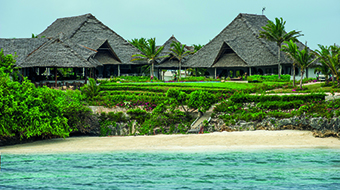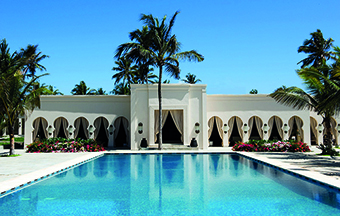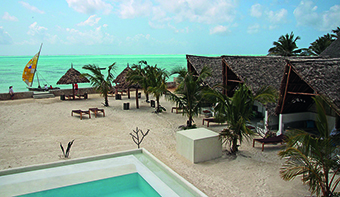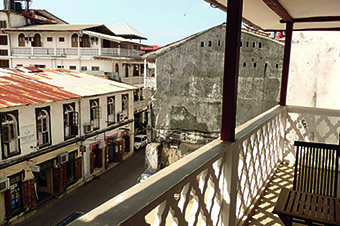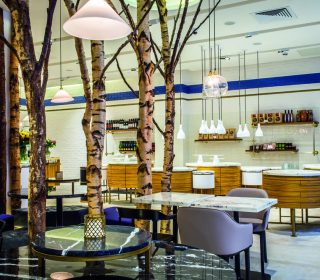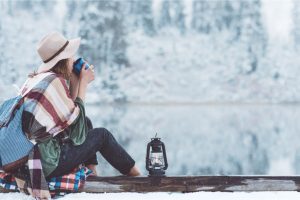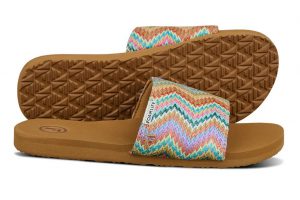Zanzibar: The new centre of wellness?
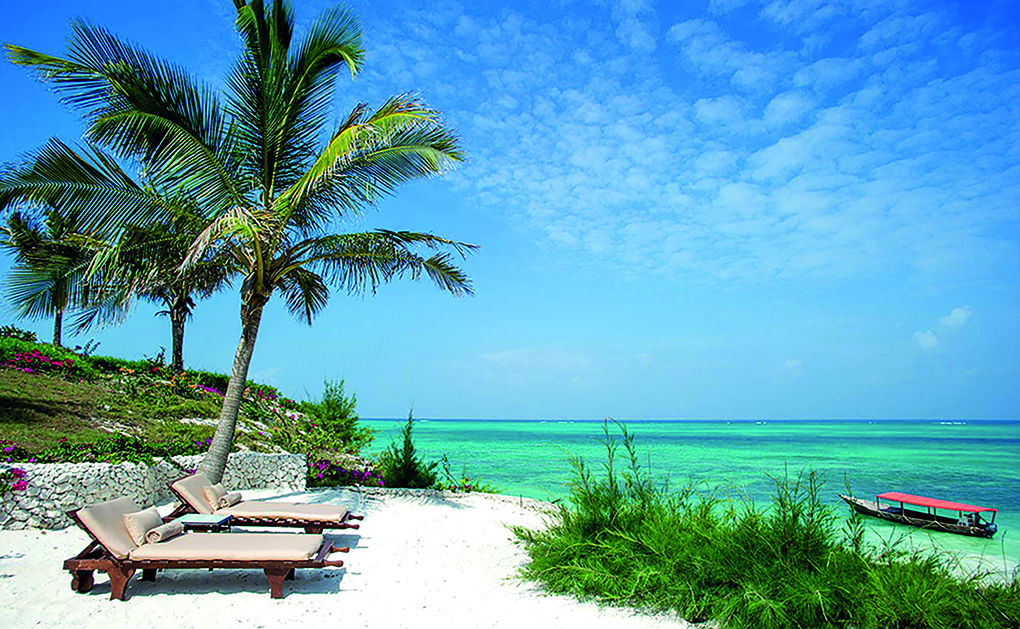
Zanzibar, or the ‘Spice Island’ as it’s also known, is fast-becoming a popular wellbeing destination. With idyllic beaches that beg for you to practise your sun salutations and a wealth of yoga retreats as well as Swahili-inspired spas, this island, 25-50km off the coast of Tanzania, is great for all in search of R&R.
As I step into a candlelit passage, the whirr of mopeds in Stone Town’s frenetic streets gradually fades and I’m in a rabbit warren-like space of low ceilings and centuries-old stone walls. The smell of oud, or udi, an incense worn by Zanzibari women, fills the air and a gentle soundtrack of taarab music plays. I’m led behind a make-shift curtain fashioned from African Kanga fabric and I wait for my spa therapist to arrive.
She’s a local Swahili woman who speaks little English and has impaired vision. She works tentatively around me, yet her intuition as she moves around the massage table, kneading the knots in my back, is impressive.
I’m at Mrembo Spa (mrembospa.com) and I’ve booked in for the ‘Singo Scrub’, a treatment inspired by a time-honoured ritual carried out on Swahili brides for many generations. This heady mixture oozes scents of ylang ylang, jasmine, rose petals, sandalwood and native herbs, such as the sweet-smelling mpatchori.
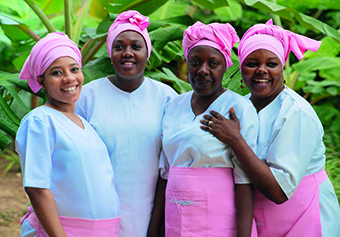
The spa women from Mrembo Spa
There have been power cuts, which I’m quickly learning is a common occurrence in Stone Town. So, after a soothing massage and vigorous scrub, I’m told there is no hot shower for washing it off – I’ll need to shower ‘African style’…
SOOTHINGLY TRADITIONAL
I’m shown to another room and there’s a barrel full of water and a large wooden ladle. It feels eons away from the sophisticated spas I’ve visited until now, yet refreshingly therapeutic as I douse myself with water. I emerge into Stone Town’s labyrinthine streets feeling calm, humbled and completely revived.
Zanzibar has been a magnet for Western travellers for a couple of decades. And rightly so – the country has all the sugar-sand beaches and gorgeous sunsets that honeymooners and safari travellers could want.
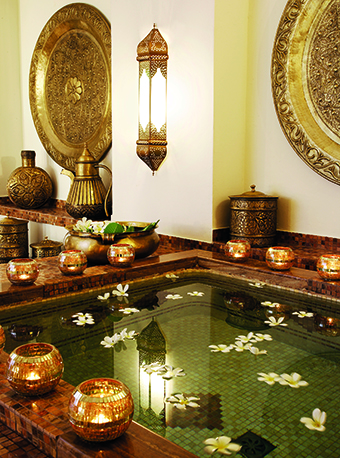
The Sultan’s Bath at Frangipani Spa
But, in recent years, Unguja, the largest and most populated island, often informally known as Zanzibar, has experienced a boom in health and wellness travel. Until 2007, you’d be hard-pressed to find a Western style spa on the island. It’s not that beauty and wellbeing haven’t featured here.
Quite the opposite: indigenous flowers and spices have been used here for health purposes for centuries. Head to the Hamamni Persian baths, built by Sultan Barghash in the late 19th century, and you can easily imagine how wealthy Zanzibaris spent their time in bygone days.
Reports by luxury holiday company Kuoni claim that Sub-Saharan Africa has the fastest growing spa and wellness tourism in the world. And Zanzibar is one of the main contenders.
FRAGRANT FIND
Stefanie Schötz founded Mrembo, one of the first modern-day spas, here in 2007. And dozens of others followed. The island offers much for yoga enthusiasts, too, with various rooftop sessions available in Stone Town and at retreats (check out yogazanzibar.com) popping up all over the coast.
One of the reasons Zanzibar has lured me here is its mystical character. Once a key trading port in East Africa, ‘the Spice Isle’ was where ships of spices were imported by the Portuguese from South America and the Far East.
The island was sought after by Indian, Persian and Arab sailors and the Omani Arabs claimed the territory from the late 17th century, establishing plantations across the island.
As a result, the Zanzibar you see today is an intriguing mix of ethnic cultures and Stone Town – a World UNESCO Heritage Site – is an enigmatic time capsule of crumbling merchant houses, incredibly elaborate Indian and Arab doors and narrow winding streets you will undoubtedly get lost in. It’s also where the late Freddie Mercury, lead singer of the rock band Queen, was born in 1946 as Farouk Bulsara.
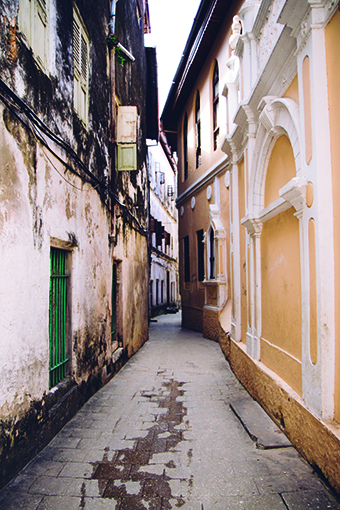
Stone Town – a UNESCO World Heritage Site
The use of herbs and spices prevails. Zanzibari women adorn their bodies with henna, made with the mhina plant. Markets overflow with hawkers selling an array of spices used for cooking – cinnamon, ginger, turmeric, garlic, nutmeg and vanilla among many others.
And chai tea, made from cardamom, ginger and clove, is poured from ornate pots in an almost ceremonial fashion.
…AND RELAX
After exploring the mesmerising streets of Stone Town, I head to Zawadi, a stunning retreat on Mswakini Beach on the island’s south-east coast. This collection of dreamy villas has been open little over 12 months and is an example of where the ‘new Zanzibar’ is heading.
Think spacious villas with traditional Swahili-style thatched roofs, with stylish all-white interiors where the scent of jasmine pervades. I visit the nearby Frangipani Spa, with its brass lanterns, dark woods and Arabic-style arches creating the sense of a Sultan’s palace. And I book in for a massage where my muscles are pulled, pressed and pummelled.
Like many travellers in Zanzibar, I’m here to escape the rat race, get some breathing (and thinking) space and build myself up again before I return to the grind of London life. And, here, there are all sorts of sophisticated wellbeing retreats that will help you do that.
AT A GLANCE
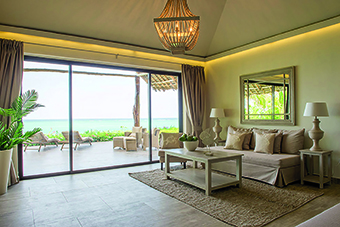
Zawadi hotel suite
Booking info: A seven-night stay at Zawadi starts from €3,675 for two people on an all-inclusive basis. For more information, visit Zawadi Hotel and The Zanzibar Collection
When to go: From June to October when it’s cool and dry or December to February, when it’s hot and dry.
Culture: Spices, music (taarab) and a Swahili influence throughout.
Scenery: Beaches lined with palms, plus alcoves and narrow streets.
PLACES TO STAY: WHAT’S YOUR BUDGET?
Splash out:
Zawadi Hotel is a collection of six luxury villas perched above a stunning cove on Mswakini Beach. Guests have access to the nearby Frangipani Spa.
High-end:
Baraza Resort & Spa is a haven of opulent Arabic architecture and Swahili design with a sleek, contemporary twist. It has 30 villas, each with their own private pools and is home to the luxurious Frangipani Spa.
Affordable:
Nur hosts 10 thatched bungalows in Jambiani, on the south-east coast. Guests can step into the swimming pool from the open-air lobby and the approach is stylish ‘flash packers’.
Shoestring:
Stone Town Café & B&B offers comfortable rooms in the heart of Stone Town. Rooms have traditional carved Zanzibari beds.
ANCIENT BEAUTY & WELLBEING
Stefanie Schötz, founder of the Mrembo Spa in Stone Town, shares the Swahili traditions you can take home.
Henna is used by Zanzibari women who apply it to the skin in Arabic, Indian and African designs. It’s made using the leaves of the mhina plant, citrus juice and, sometimes, black tea, and is said to have an anti-inflammatory effect.
Udi or Oud is the Omani incense many Zanzibari women use as perfume. It is made from sugar, rosewater and musk. Many premium brands, including Jo Malone, have Oud fragrances.
The Singo Scrub is made by mixing ylang ylang, jasmine, rose petals, sandalwood, geranium and sweet basil with rosewater in a traditional kinu blender. It’s often used by Swahili brides in the lead up to their wedding.
The Vidonge Clove Scrub is a unique blend of clove stems and buds with rosewater, traditionally used by men on Zanzibar’s Pemba island. It’s said to increase a man’s libido and stamina.
A Kukandwa massage is the application of soaked castor seeds or leaves to the body and is used to relieve fatigue and muscle aches after childbirth. It’s another treatment used in the islands for centuries.
Read more: The city of dreams guide to Tokyo



